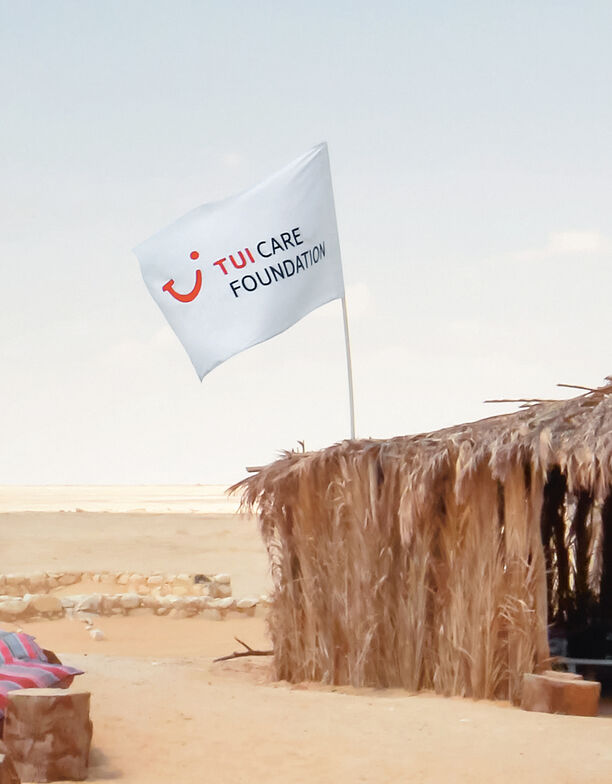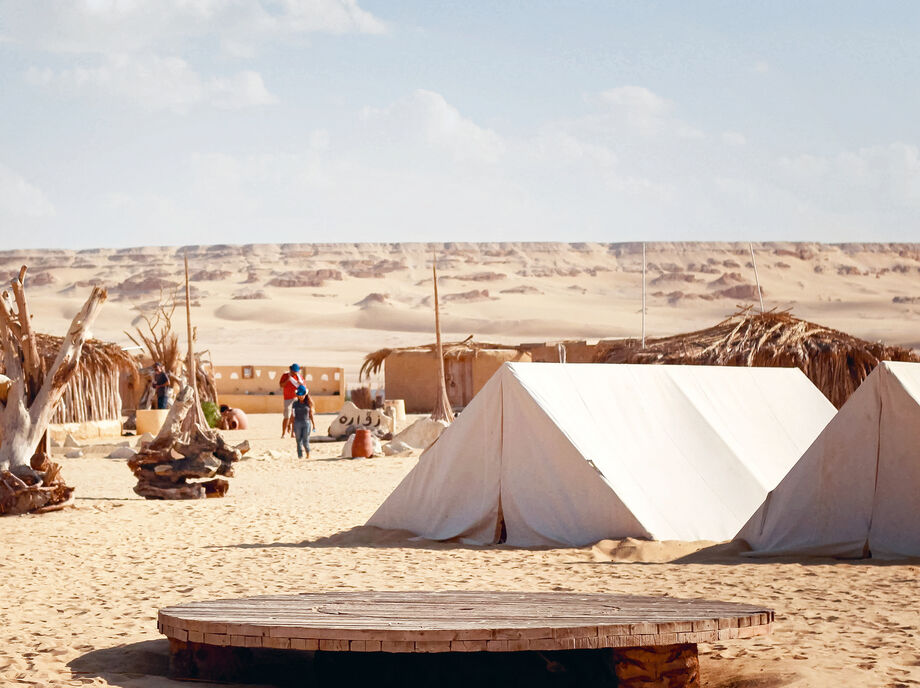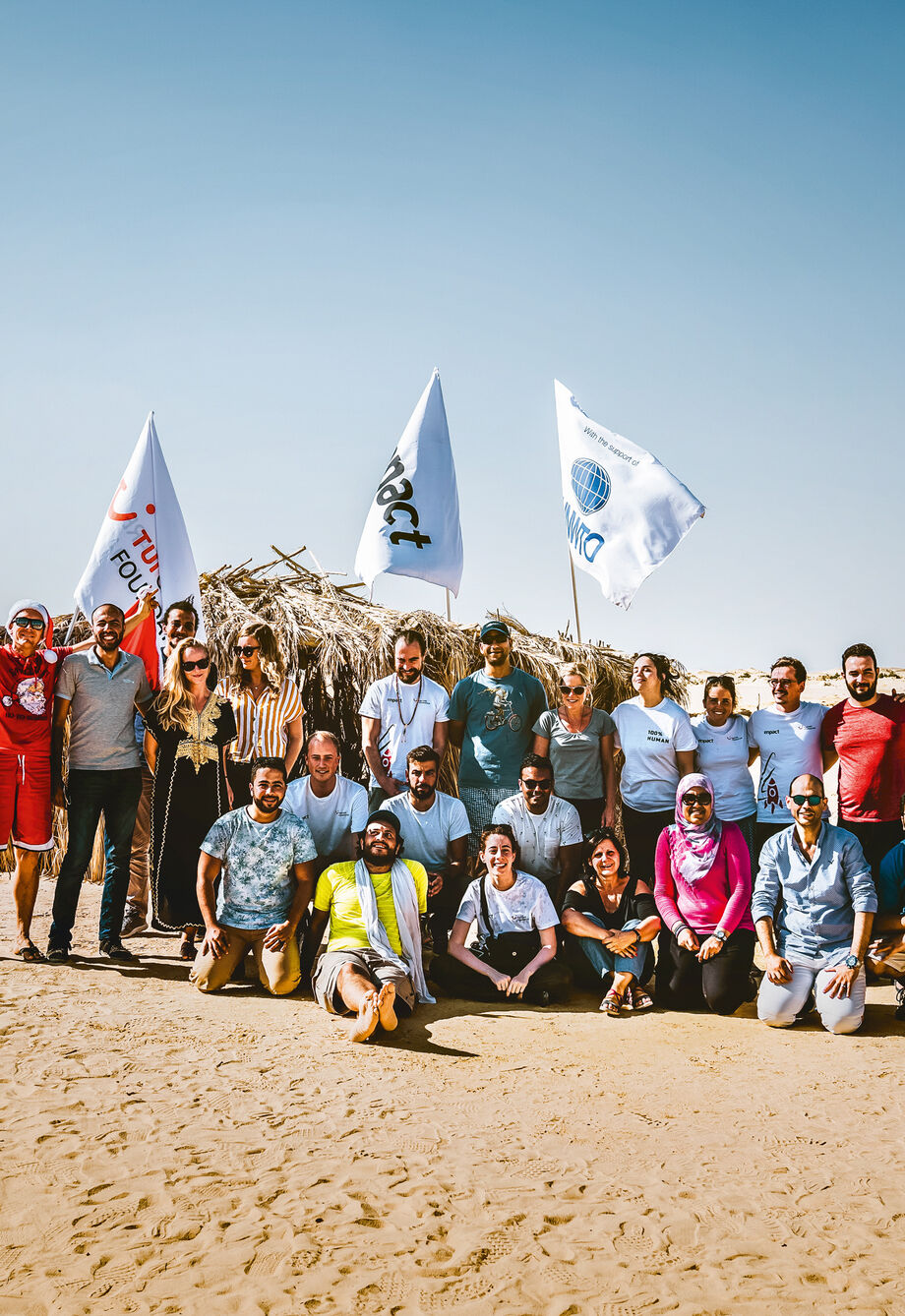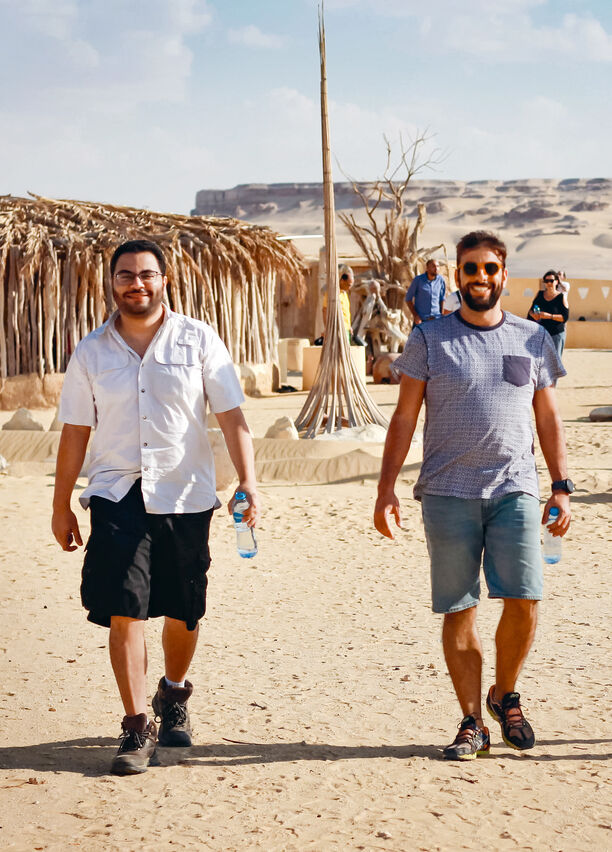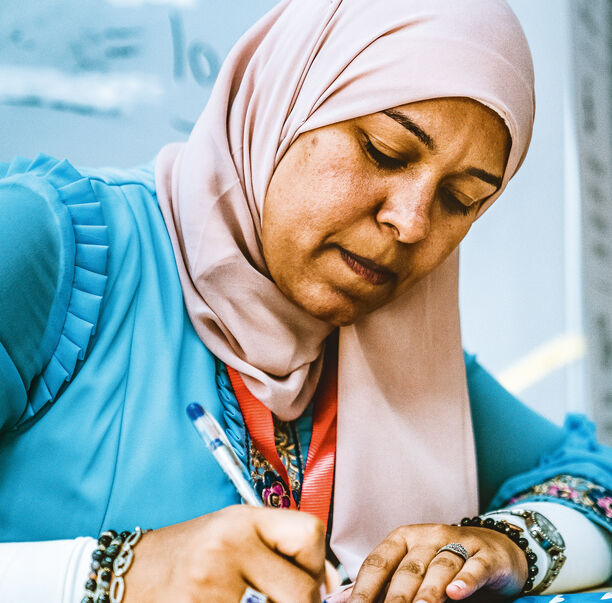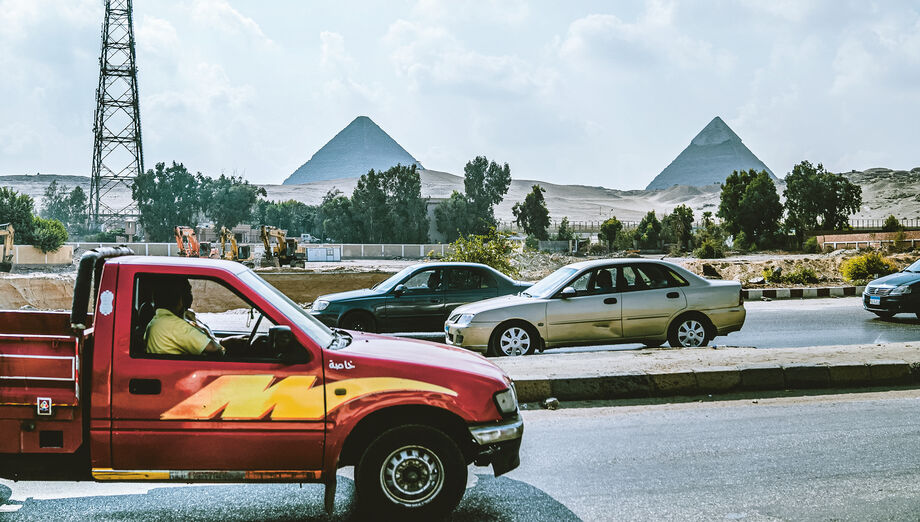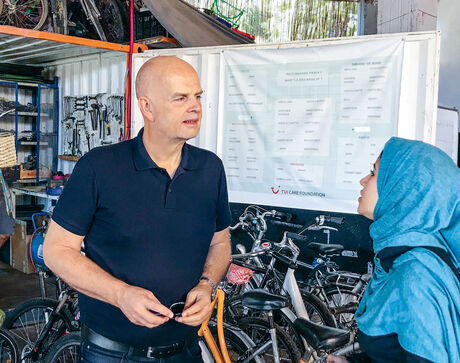Desert deep dive
In September 2019, before anything else, the entrepreneurs were literally sent into the desert. Their first meeting with their mentors took place in a simple camp outside Cairo. A surprising start to the week-long workshop that introduced the three-month programme. Amir Gerges, who is developing Conictus as a platform for diving tourists, experienced this excursion to the sand dunes as a form of diving. “Deep into my soul.” At this stage they were not talking about business ideas yet. First, the participants had a chance to get to know each other and themselves better. One task firmly engrained in Gerges’s memory was the speech they were all asked to give: “What would we say to the group if we knew our lives were going to end the next day? In my mind’s eye I pictured a sandglass where the hours of my life were relentlessly trickling away. And it was clear to me that I really wanted to make use of my time to do what I love doing.”
Amir Gerges wants to draw on artificial intelligence to link tourists with diving schools: “My platform Conictus will be used to book trips, but also to archive and share photographs and dive data. This will then help the instructor to assess the holidaymaker’s abilities more accurately and offer the right activities.” Boats can also be shared through the app. Diving schools still ride out to sea separately and the boats are often only half full, but sharing boats would greatly minimise the consumption of resources. In addition, Gerges envisages a kind of citizen science service: “Every day thousands of divers around the world observe marine ecosystems and take pictures. Why shouldn’t scientists make use of that data for their research?” Gerges also wants to make data and knowledge available to staff at national parks and environment organisations in developing countries for their day-to-day work: “We are working on AI solutions that can be applied locally.”
Like the other budding entrepreneurs, Gerges is committed to the future of the tourism industry in Egypt. After years of decline, more people are coming to the country again for their holidays. Young people look to the sector for opportunities. Cairo has a very vibrant start-up scene. “The Arab Spring showed us how powerful social media and digital tools can be. Now lots of people are also trying to use them for business,” says Gerges.




 Austria
Austria

